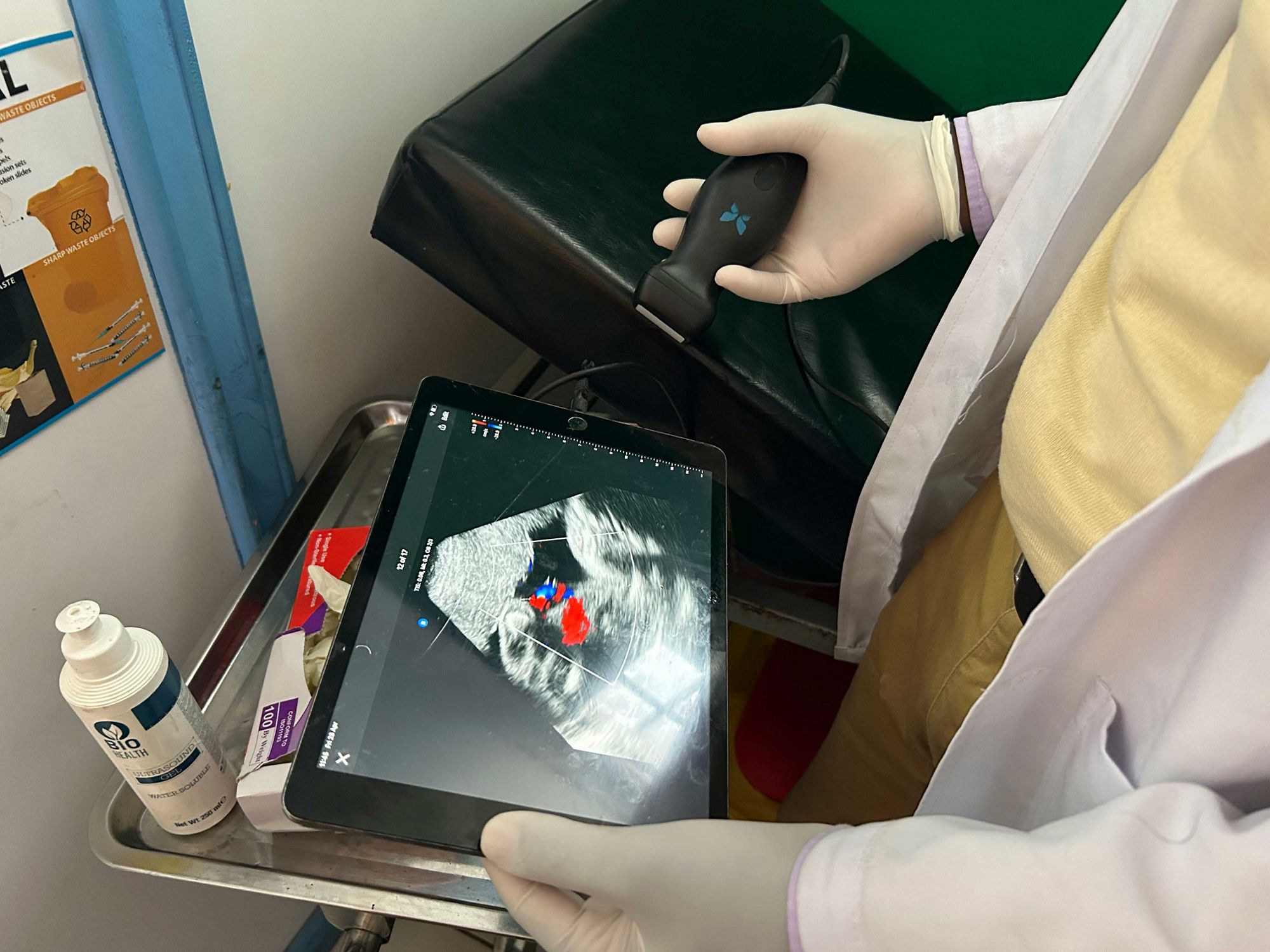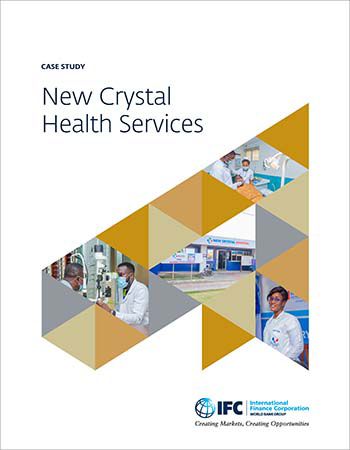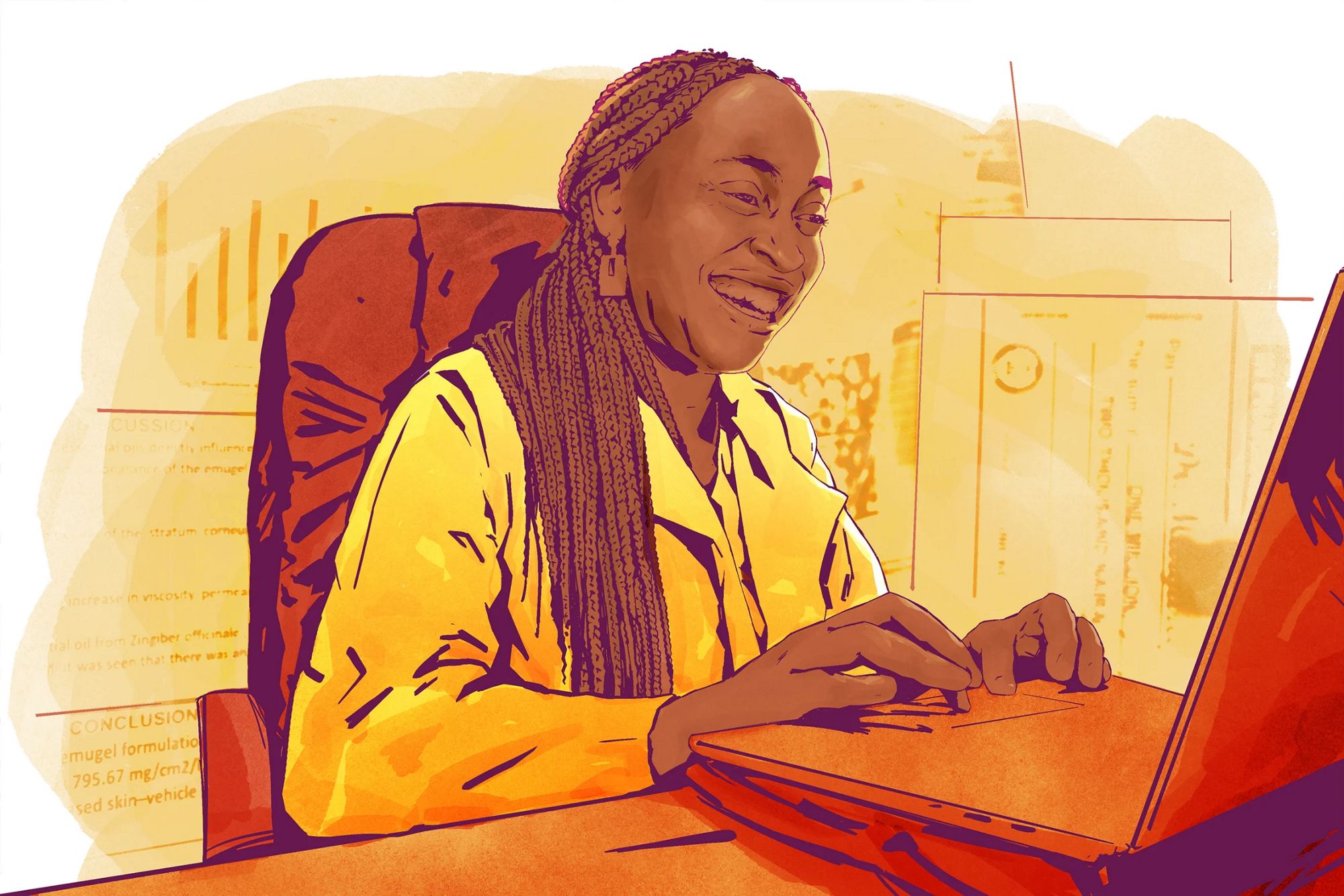In 2023, IFC delivered $7.6 billion in climate finance across all industries, representing 46% of the institution’s commitments for the year. IFC also raised $6.8 billion in private capital from other sources – amounting to a record $14.4 billion in climate finance lent and mobilized.

Climate change poses a significant threat to global health and could reverse decades of progress in sustainable development. It alters patterns of diseases, magnifies the scale and frequency of extreme weather events, and worsens air and water quality. These changes result in an increase in heat-related and respiratory illnesses, as well as other diseases that put substantial strain on health systems and further expand health inequalities. Together with the World Bank, IFC is working with governments and the private sector to create more resilient health systems that can withstand the impact of these health challenges and sustain the momentum of global development.
As part of its global commitment to support a healthier and more resilient future for all, IFC works with the World Bank to jointly address climate change impacts on healthcare, including through partnerships with governments and the private sector to understand climate risks, identify the most cost-effective solutions, and mobilize financing. Through these initiatives, IFC supports countries’ efforts to achieve a low-carbon future, minimize climate-induced health risks, and boost universal health coverage.
Data Highlights:
• $9 billion+
in creating stronger health systems since 1999
$3.96 billion
in cumulative pharmaceutical investments since 1999
28 medical facilities
Participated/certified under IFC’s EDGE program
Priority areas for action:
Climate change impacts global health in significant ways. IFC adopts a broad-based approach to strengthening health systems against these climate-induced risks. We have three targets: adaptation, mitigation, and health systems strengthening.
- As climate health risks worsen, IFC supports countries to adapt health systems to new disease patterns and emerging needs by strengthening local health supply chains, expanding access to quality healthcare, and helping health facilities be more resilient to the impacts of climate change.
- The excessive build-up of carbon and other greenhouse gases remains a key driver of the climate crisis. IFC works with health companies to embed climate-friendly processes in building health infrastructure and facilities such as hospitals to cut emissions. IFC also works with manufacturers of medical supplies, including pharmaceuticals, to reduce their emissions and use resources more efficiently.
- Resilient and robust health systems can adapt to new health challenges, minimize disruptions in healthcare delivery, protect communities, and reduce global health disparities. IFC works with organizations across the health value chain to strengthen health service delivery, reach the most vulnerable, adopt new technologies and innovations that tackle new health challenges, reduce the spread of vector diseases, and expand access to affordable healthcare.
How we do it

Partnerships: Working together for bigger impact
Securing a livable planet for all requires forging strong partnerships that foster shared knowledge, expertise, tools, and resources required to address climate risks. IFC leverages its unrivaled network of partners to develop strategies and mobilize private sector investments that address the complex challenges posed to global health by a changing climate.
Key partners include the World Health Organization (WHO), CEPI, the Pan American Health Organization (PAHO), PATH, and the World Economic Forum. Among other things:
- IFC currently co-leads the new Development Banks Working Group for Climate-Health Finance to harmonize efforts and maximize development bank impact.
- IFC is part of the Regionalized Vaccine Manufacturing Collaborative initiative together with CEPI to help address the global gaps in vaccine equity.
Financing: Strengthening healthcare to improve access and quality
IFC leverages various fiscal instruments to finance projects that strengthen health systems as well as initiatives that support countries’ efforts to mitigate climate-related health risks. This includes mobilizing investment to support programs that minimize environmental pollution, reduce greenhouse gas emissions, prevent the spread of vector-borne diseases, and strengthen healthcare systems to withstand climate-induced health challenges, including emergencies. For example:
- Through the Global Health Platform, IFC has mobilized US$0.6 billion mobilization and deployed an additional US$1.3 billion from its own account to help meet urgent health needs and build more robust health systems. As of July 2023, the Global Health Platform has supported 18 projects, amounting to $1.9 billion.
- Blended finance is a mechanism that allows IFC to leverage private investments by mitigating risks and enhancing returns for investors, thus driving more capital towards development projects in challenging markets. This approach combines concessional funds with private capital, enabling impactful investments in areas that are crucial for sustainable development yet typically overlooked due to higher perceived risks.
- IFC aligns its efforts with the World Bank Group’s annual Country Climate and Development Reports, which help client countries identify and prioritize public and private initiatives to further low-carbon growth.
- Social bonds are being deployed to establish an integrated health ecosystem focused on quality, affordable, and accessible health care.
Advisory Service: Helping companies green operations and facilities:
IFC provides additional services to health companies beyond financing to help them identify areas to improve climate-friendly operations and resource use, helping keep the planet green while reducing costs.
- EDGE (Excellence in Design for Greater Efficiencies): IFC offers investment and advisory services for developing energy-efficient buildings. Hospitals use 2.5 times more energy than typical commercial buildings, but with proper design choices, medical facilities can provide top-notch care while minimizing energy and water use. EDGE guides healthcare organizations in selecting technologies to reduce energy costs and manage budgets effectively, aiming to create high-standard healthcare facilities without wasting resources.
- Resource Efficiency Program (Pharma) IFC helps its clients evaluate their business processes and identify opportunities to enhance energy efficiency, improve water, and material usage, reduce operating costs and boost environmental sustainability.
Project Examples
In the Philippines, IFC’s investment in Ayala's $100 million social bond is funding the country's first specialty cancer hospital, emphasizing sustainable, resource-efficient construction.
In Thailand, IFC's investment in health care provider Principal Capital Public Company Limited (PRINC) focuses on expanding its hospital network in Thailand's rural areas, targeting middle and lower-middle-income patients. This investment incorporated IFC’s EDGE certification for sustainable design and energy-efficient healthcare infrastructure.
In Mexico, IFC has supported private diabetes healthcare facility, Clínicas del Azúcar, which utilizes tech innovations such as apps to help clients remotely monitor their blood sugar levels, manage medications, and learn about beneficial nutrition and lifestyle changes. Climate change aggravates the spread of communicable diseases, impacting food security and access to care, among other things. Innovative technology offers solutions, improving health delivery and patient outcomes, especially in disease surveillance and monitoring.
In Egypt, IFC partnered with pharmaceutical company Rameda to support its transition towards environmentally sustainable operations. This collaboration aims to reduce Rameda's carbon and water footprints and enhance resource efficiency at its Cairo facilities. This initiative is particularly significant in Egypt's context, where conserving scarce water and energy resources is crucial for both environmental and economic sustainability.
In West Africa, IFC committed approximately US$55 million to two subsidiaries of Fosun Pharma. Through the investment, IFC is supporting the construction of a manufacturing facility near Abidjan to produce anti-malaria and anti-bacterial medicines. Aside from many other public health challenges, Sub-Saharan Africa accounts for over 95% of global malaria cases and deaths, according to the World Health Organization. The investment will improve access to quality, affordable, life-saving medicines across West Africa, contributing to better health outcomes.
Stories, Insights & Reports:
Video
Last updated: April 2024



